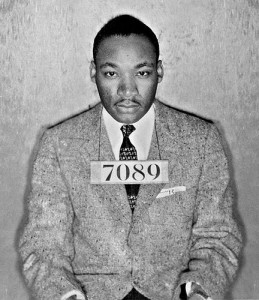Citizen Action
Learn About Local DIY Health Studies Tomorrow in Hour Call
 Our apologies for the late notice, but tomorrow, if you're available from 11 to 12 noon Dallas time, you can participate in a free national conference call to learn more about local health studies that citizens might be able to do or fund with guest speaker Gregory Howard, Assistant Professor of Environmental Studies at Dickerson College in Pennsylvania, who got his doctorate in epidemiology and toxicology from the highly-regarded Boston University of Public Health.
Our apologies for the late notice, but tomorrow, if you're available from 11 to 12 noon Dallas time, you can participate in a free national conference call to learn more about local health studies that citizens might be able to do or fund with guest speaker Gregory Howard, Assistant Professor of Environmental Studies at Dickerson College in Pennsylvania, who got his doctorate in epidemiology and toxicology from the highly-regarded Boston University of Public Health.
According to the Center's press release, citizens will be able to hear about "the range of possible community health studies, how to match an appropriate study to your community's concerns, and some benefits and pitfalls of different types of studies. During the call we'll provide access to a guide to assist groups and individuals in navigating the process of investigating environmental health problems in their communities. The brief presentation will be followed with an open conversation and Q&A about community health studies."
While there's no cost to participating, spaces on the call are limited, so sign up now here.
Turkey, Pollution and Authoritarianism
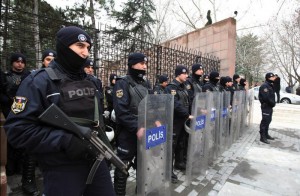 Events in Turkey remind us there's a direct connection between authoritarianism and pollution. Polluters depend on closed doors, opaque operations and a heavy hand – the same conditions that allow authoritarian governments to thrive. Because of ownership connections, supply contracts and employment pools, there's often no delineation between where government ends and industry begins – witness the 21st Century "Red Army Inc." in China, or the state-approved Russian Oligarchies.
Events in Turkey remind us there's a direct connection between authoritarianism and pollution. Polluters depend on closed doors, opaque operations and a heavy hand – the same conditions that allow authoritarian governments to thrive. Because of ownership connections, supply contracts and employment pools, there's often no delineation between where government ends and industry begins – witness the 21st Century "Red Army Inc." in China, or the state-approved Russian Oligarchies.
Corruption is institutionalized in such places. Pollution is just another form of state-sponsored crime that's overlooked by everyone that matters. With one large exception. When the crime is padding payrolls or skimming profits, it's not worth the trouble of ordinary citizens to speak out. It's a matter between the Powerful. But when the result of the crime is making your kids sick, or ruining your farm stock and land, then you have less to lose by fighting back.
And in a country run by an authoritarian government, what does fighting back mean? Well, it doesn't mean filing a complaint or going to court because those options are not allowed, or at least not allowed to be successful. Your options are very limited. That's why Chinese parents resort to kidnapping factory managers, and arson these days to protest new petrochemical plants. And it's one of the reasons why the events in Turkey took on a life of their own after being sparked by the brave stand of three people to save a park in Istanbul in the middle of the night.
One of the most serious misdiagnosis of the right is it's derision of everything "green" as the silly aspirations of white, middle-class youngsters with too-much-time-on-their-hands. Environmental health is a fundamental "freedom" issue. Invasion of your lungs and intestines with adverse foreign substances is the ultimate eminent domain issue. It's trespassing. Parents want to protect their kids from poisons. People want to breathe clean air and drink clean water. They want to look at things besides offices buildings and feel something besides concrete beneath their feet. To be Free, to Enjoy Freedom, human beings have to experience Free places – Smog Free, Pollution-Free, Sprawl-Free. This was the Libertarian-influenced force behind early American conservation and park-building – as championed by stout GOPer Teddy Roosevelt.
Oddly enough, it turns out that yearning isn't confined to Young White People in America, or even America itself. It seems to be a universal yearning that people in every continent have been increasingly expressing. To fight for environmental justice in Authoritarian-run countries is to be a true "Freedom Fighter." But most of the Right is deaf to this. The very constituencies you'd think it'd be championing – Chinese peasants getting shat on by their communist-in-name-only state-industrial complex – get ignored.
Now, granted Texas isn't a Turkey or a China, but you don't have to live in another country to see authoritarianism seeping into, and affecting, the politics of pollution. Exhibit A: the secret agreement between out-going Dallas city Manager Mary Suhm and Trinity East that was kept from the public for five years, even as it drove the city's agenda on gas drilling. That's a pretty clear example of the state and industry teaming up to become a single entity that had its own separate agenda from the public one either presented, as well as how the system is perverted to fit the deal instead of the public good.
To a lesser extent, severely restricting public comments at public meetings and the over-reacting to obnoxious hecklers is also part of this same strain. The less transparency for the deal makers, the better. The heavier the hand in quelling dissent, the better.
That's why fights over pollution are almost always fights over democracy too.
Tools for Citizens
 The Texas Tribune is a completely online journalistic experiment. Of late, it's offered some cool interactive tools for the curious-minded:
The Texas Tribune is a completely online journalistic experiment. Of late, it's offered some cool interactive tools for the curious-minded:
1) Interactive Map of Ammonium Nitrate Sites in Texas
Wondering if your friendly neighborhood feed store is another "West" explosion waiting to happen? You can track down over 110 sites listed by the State Health Services Department as facilities storing the chemical Ammonium Nitrate in powder or liquid form. It also tells you where the nearest school and hospitals are in relation to the site.
2) Tracking Energy Industry Contributions Among Texas Politicians
Use this handy tool to trace which elected officials are the recipients of political campaign contributions from T. Boone Pickens, Oncor, Energy Future Holdings, and all the other major industry players since January of 2011. Not surprisingly, Greg Abbott leads all comers as he gears up to run for Governor.
We Need More Claudia Meyers
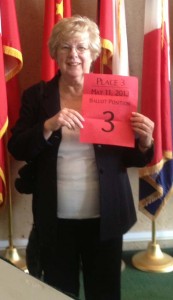 There are failures and then there are glorious failures. Just ask William Travis.
There are failures and then there are glorious failures. Just ask William Travis.
Claudia Meyer did not win her District 3 council race against Vonciel Hill on May 11th. Odds were heavily against her doing so. But Claudia knew this going in. And still she fought a good fight.
"I wanted you to see what real courage is, instead of getting the idea that courage is a man with a gun in his hand. It's when you know you're licked before you begin but you begin anyway and you see it through no matter what. You rarely win, but sometimes you do." ~Atticus to Scout in Harper Lee's "To Kill a Mockingbird"
Imagine you're a 71-year old retiree who's spent the last four years being exhausted by a fight with Dallas City Hall over gas permits in your neighborhood. And then you're drafted at the last possible minute to run against a Dallas Establishment darling, keeper of the Trinity Toll Road dream, with access to money and resources that you'll never be able to match. Most sensible people would have said thanks but no thanks. Thank goodness Claudia Meyer did not.
Without a serious opponent, Vonciel Hill would have glided to a third term, her homophobia and complete subservience to the Powers That Be mostly unchallenged. Claudia Meyer made sure that didn't happen. Hill had to go out and work for her victory. She had to at least pretend to be concerned about neighborhoods and issues she otherwise probably would not have bothered with. Opposing such a Citizens Council sycophant is a badge of honor.
Claudia also made Hill's literal worship of embattled City Manager Mary Suhm an issue, as well as Hill's support of Suhm's secret gas drilling deals. One can't help but feel this language, and similar campaign rhetoric in other council races, played a part in Suhm's decision to step down later this year. We know that the drilling scandal that she was at the center of, and which Claudia and Ed Meyer helped uncover, certainly did.
So while Claudia lost the battle on May 11th, she and the forces organized on her behalf have been winning the wars. Suhm is now history and for the first time in eight years, there won't be a "Strong Manager" form of Dallas City government. The fight Claudia help found and direct against the Trinity East gas permits has not only stopped them dead in the water, but shifted the entire council to a more anti-drilling stance. She wont be sworn in on June 24th, but Claudia Meyer's efforts will be well-represented on the new city council.
Not all of us have the gumption that Claudia did in taking her leap of faith. But we can do what we can do – and, let's face it, that's usually more than we end up doing.
We need more people willing to put their shoulder to the wheel of creaky social change. Its hard work. You don't always win. But there's a great deal of value in trying.
If you want to make sure that the Dallas City Council is as progressive as it can be; that it will reject irresponsible gas drilling permits and build a real quality of life agenda, then the consensus is that you should go out and volunteer for the Philip Kingston and Jesse Diaz Campaigns. Early voting begins June 3rd for a June 15th run-off election day. These races will be decided by even fewer votes than the races in May. Every single one counts. Stiffen that backbone, slip on those walking shoes, and finish the work Claudia started.
Dallas City Council Elections and Drilling: Mayor’s Plan Fails, What’s Next?
 The dust hasn't completely settled, but it's clear that Saturday's municipal election generally strengthened anti-drilling sentiment on the Dallas City Council.
The dust hasn't completely settled, but it's clear that Saturday's municipal election generally strengthened anti-drilling sentiment on the Dallas City Council.
This happened because of two things: 1) Residents elected anti-drilling candidates outright (Griggs and Medrano, with a run-off for Kingston), and 2) a couple of hard core supporters of the Mayor's and Mary Sumh's drilling plans were replaced by candidates who are more conditional in their support for how and where to drill than their predecessors (Kleinman replaces Koop, Griggs replaces Jasso).
Both of those factors can be traced directly back to all the constructive hell-raising citizens have been doing over the past two years or more. Every single candidate questionnaire had a query about gas drilling in Dallas. It came up at debates and forum and interviews. You made it an issue that even business-backed candidates had to address in a citizen-friendly way. You changed to tone, the content of the debate. You did that.
Our citizens' slate won two out of five races outright, with a chance to make it three out of five if Kingston wins the June 15th run-off. Unfortunately, Claudia Meyer lost her race to Vonciel Hill despite a lot of hard work and grassroots effort. And drilling opponent Leland Burk lost to Jennifer Staubach-Gates.
The June 15th run-off is now very important indeed, because it could give us up to 6 votes on the Dallas City Council against irresponsible urban drilling, with a possible 2-3 more swing votes coming over to our side depending on the permit and the site. You need 8 votes out of 15 to win. We're very close.
Besides the Kingston run-off with industry-backed Bobby Abtahi, there's also the District 5 run-off pitting Jesse Diaz against Rick Callahan – both very conditional drilling supporters who appear to be against park drilling.
So here's the Dallas Drilling scorecard as of today:
Opponents of Drilling
Greyson
Griggs
Davis
Alonzo
Medrano
June 15th run-off:
Kingston
Unconditional Supporters of Drilling:
Rawlings
Hill
Atkins
Caraway
Allen
Kadane
June 15th run-off:
Abtahi
Conditional Supporters – based on public statements
Staubach-Gates
Kleinman
June 15th run-off: Diaz or Callahan
Short-term, these election results look like they doom the zombie Trinity East permits. We only need four Council votes or more to uphold the City Plan Commission denial of those permits. We have at least five now, with the chance for 6 or more after June 15th. So the Mayor's plan to hold off on voting on these permits until after the election in hopes of finding more supporters has failed.
This is no small accomplishment. Last November, when the Mayor held a press conference and announced that he was breaking the informal moratorium that was holding back all permit requests until a new ordinance was written and pushing the Trinity East permits through for approval, it indeed looked like a "done deal." And as recently as April, some Dallas City Council members were telling their peers in Irving not to fret, because, despite the Plan Commission vote, the Trinity East permits were still a "done deal."
Well, folks that deal is done now. Well done. As in, put a fork in it. Congratulations. The Mayor tried to pull a fast one and he didn't succeed because of the fierce resistance he got from his own residents. We should know soon when the Trinity East vote will be, and when it's scheduled, we'll need you at City Hall once again to show the new city council that fierce resistance in person. Maybe that will make an impact on their future voting.
Longer term, the new Council will have more members who are opposed to all drilling in Dallas, not just in parks and flood plains, but they don't yet constitute a majority. They're at direct odds with the six Council incumbents who are avid supporters of drilling everywhere and anywhere. Somewhere in the middle – at least until the first vote or so – will be the three freshman members who are possible swing votes.
Their views will be increasingly important if one or both things begin to happen – there is movement to actually write a new gas drilling ordinance after the Trinity East permit denials are upheld, and/or Luminant follows through on its plans to drill and build a compressor station at North Lake and submits permit applications that will be at the center of yet another round of public controversy.
For now, let's concentrate on the June 15th run-off and getting a 6th anti-drilling vote on the Dallas City Council. Its not 8 yet, but it's pretty darn close and construction is still in progress.
Tomorrow is Election Day. People Like Us Need to Make It Earth Day Too.
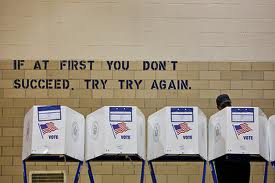 Some cynics don't think voting matters. They're wrong. It matters a lot. Especially local elections.
Some cynics don't think voting matters. They're wrong. It matters a lot. Especially local elections.
Because the pool of votes is smaller, each vote is magnified. Your vote literally counts for more. Because the elected official is a neighbor and governs from City Hall or the Courthouse instead of Austin or Washington, they're more directly accountable for their decisions. In many ways, local elections are the closest we come these days to what our founders believed all elections should be about.
That's why folks like us need to be more involved with them. Local elections are more susceptible to the determined energy of insurgents. They take less money to win and shoe leather passion can beat big bank accounts. They're winnable with the resource we have, or can realistically raise. They don't necessarily produce a final victory outright, but they can help you get there sooner than you would otherwise.
As it happens, that's exactly the same pragmatic philosophy behind Downwinders at Risk's emphasis on local organizing in North Texas. The more local it is, the more muscle we have.
But there's a huge disconnect between the feel-good, big-tent well-attended local festivals that surround Earth Day events now and the way those same festival crowds vote on Election Day a few weeks later. We need to change that.
That's why Downwinders at Risk and its 501c3 Education Fund are both spending money and effort on educating voters about the Dallas City Council election this cycle. Although gas drilling isn't officially on the ballot, it's what's at stake. Will Dallas follow the now-familiar path of being ridiculously subservient to the oil and gas industry, or can citizens force it to stake out a different course that's more balanced? Right now Dallas is front and center in the North Texas gas counter revolution. That's why we're there.
So far, citizens have won every round, despite the combined forces of the Dallas Citizens Council, City Hall, and the industry working against them. But those victories could be be temporary depending on tomorrow's electoral outcome. The Mayor has cynically put off the final vote on the Trinity East gas permits until he sees if he has an even more pro-drilling council to override the City Plan Commission denial.
If you live in a Dallas city council district with a competitive race, we strongly urge you to vote. We've publicized a breather's guide to the best candidates on the drilling issue that includes, Claudia Meyer in District 3, Philip Kingston in District 14, Scott Griggs in District 1, Leland Burk in District 13 and Adam Medrano in District 2. If you haven't volunteered your time or given money to any of these candidates it's too late now, but everything will be forgiven if you turnout and vote your passion tomorrow.
D Magazine, published by a principled disciple of William F. Buckley and catering to a demographic several tax brackets above ours, is running an on-line survey of Dallas city politics on the eve of Election Day. One of the questions they're asking is whether drilling should be allowed in urban areas. Last time we looked there was a resounding 75% "No!" in response. And yet, most members of the Dallas City Council actually are OK with not only drilling in Dallas, but drilling in parks, flood plains and putting refineries next to schools and huge recreation centers. There may be no other issue in recent memory where Dallas City Hall was more out of sync with its residents. That has got to change if we're going to win the war and not just the battles.
And the grassroots movement has to embrace and become skilled with the tool of local electoral politics. That's why, in the coming months, Downwinders at Risk will be exploring the creation of a Political Action Committee, or (PAC), focused exclusively on strategic local, North Texas races. It's time we got more involved in helping to decide who the deciders will be.
Meanwhile, do your part tomorrow to make Election Day Earth Day.
Erin Got a Movie, But Lois Created a Movement
 Every movement for social change has a birthplace that history assigns it. It's Rosa Parks refusing to give up her set on the bus, or the Stonewall patrons refusing to be bullied by the police.
Every movement for social change has a birthplace that history assigns it. It's Rosa Parks refusing to give up her set on the bus, or the Stonewall patrons refusing to be bullied by the police.
For the grassroots environmental movement, it was Lois Gibbs and her neighbors refusing to let two EPA employees leave a Love Canal home for 6 tense hours in 1980 as they negotiated with the President of the United States for relocation off the top of a toxic landfill.
There was already an environmental movement in the mid-to-late nineteen-seventies, but it had grown out of the counterculture surrounding opposition to the Vietnam War and had a strong ideological streak. It also tended to focus on problems from a national or international perspective. Species extinction. Population control. Nuclear testing. Big Issues.
When Lois Gibbs made the connection between her children's illness and living on top of a toxic dump that no one had bothered to tell her or her neighbors about in Love Canal, New York, it was the beginning of a new kind of environmental activism. An activism rooted in home ownership and parenthood. An activism that stressed urgent action over political analysis. An activism that brought the unexamined consequences of 20th-Century industrialization not just into the living rooms of average Americans, but into their blood streams. It was the first time that we figured out that while we were thinking globally, we were getting poisoned locally.
It's hard to believe, but a short 35 years ago, there was no precedent for what Lois Gibbs did. There were no national groups advising citizens on how to effectively organize against toxic hazards. The EPA was only eight years old, as were the very first incarnations of the Clean Air and Clean Water Act. Yet her course of action is the template that is still repeated time and again, mostly still by women, as this nice retrospective piece makes clear:
…one day in 1978, the Niagara Falls Gazette published a story about toxic dump sites cluttering the region. Love Canal was one, and the news screamed from the page: 21,000 tons of toxic waste had been buried next to the school property, underneath the playground.
Pressing to move her son to another school, Gibbs won an audience with the school board superintendent. The school chief settled into an oversized leather chair behind a broad, shiny wood desk. He seated Gibbs in a school desk normally used by kids. Sunken in her seat, she slid two doctors’ notes across the desk saying her son’s sickness could be tied to the dump, she said.
The superintendent glanced at the notes, then slid them back. “‘We’re not going to do that because of one hysterical housewife with a sick kid,’ ” he said, as Gibbs recalled it. “ ‘Well, if your kid is so sick, why don’t you go home and take care of him? Why are you running around to City Hall and the school board?’ ”
Tears streamed down Gibbs’ face. “All of a sudden, I became the bad guy.”
At home, her Irish-Catholic temper began to burn. Raised on Love Road in Grand Island, one of six children of a stay-at-home mom and union dad, Gibbs was taught to vote at election time and fly the American flag. Now, as she raised two sick children in a town smothered in waste, the government had turned its back. “After I got sad, I got mad,” she says, recalling the conversation that helped propel her on a lifetime of activism. “Don’t ever tell me I’m a bad mother.”
Lois Gibbs wasn't calling herself an environmentalist when she started. She was just a desperate and pissed-off parent. But that's what made her effective. She was 26 years old.
“She was like a hurricane and we just kept going,” said Luella Kenny, a fellow Love Canal resident. “She was a housewife, and there’s nothing wrong with being a housewife, and she did not have all of this shall we say Wall Street and Washington know how the politicians had and the Wall Street investors had.”
Instead, Kenny said, Gibbs possessed a “hidden talent she wasn’t even aware of. But when push came to shove and your children are being threatened, I think you find that energy that you are going to protect them, for heaven’s sake.”
This is the same energy Downwinders at Risk was founded on. It's the same energy you find in all real grassroots fights. It's the kind if energy national groups based in Washington or New York did not have at the time and did not have the tools to support. Lois Gibbs wrote the creation story of the modern grassroots environmental movement.
Because of the fight over Love Canal, the nation's first Superfund Law was created to help finance the clean-up of abandoned waste sites. As so many women have since then, her experience in leading the fight transformed her deeply. She found her voice. And having found it, there was no chance in hell she was going to lose it.
She's created a national clearinghouse for helping citizens that she still runs, and its impact on groups throughout the country has been immeasurable. It provides a laboratory and staff and resources that often provide the only common link between thousands of new Lois Gibbs in their own fights.
Some of us have been lucky enough to meet Erin Brockovich in person and find out for ourselves how underplayed Julia Roberts was in her on screen portrayal. She's the real deal. And there's no question that her celebrity status generates public and media interest in righteous local fights that would otherwise be begging for attention. But her toolbox is a law firm. Her job as a legal assistant in a law firm put her on the front lines of one of the largest and most serious water contamination cases in modern US history and it's the same law firm that she uses as an effective cudgel when the circumstances are just right. It's the prism she sees everything through because it's the way she helped clean up Hinkley, California, the way she got introduced to the fight.
Lois didn't get involved in the grassroots movement because of her job. She was involuntarily drafted because of her son's illness. Her toolbox is a movement she founded. It's got a lot more strategies and tactics in it than just lawsuits. Lois sees the problem through a bigger prism because it wasn't lawyers that got her out of Love Canal, it was collective action of her neighborhood, including the taking of two EPA employees as hostages. When you start out like that, you see the world differently.
Downwinders is the direct descendent of Lois Gibbs and the Love Canal fight. Not just in spirit. Not just because our founder Sue Pope has been called "the Lois Gibbs of cement plant opponents." Gibbs herself was a mentor to National Toxics Campaign Director John O'Conner who, in turn, was a mentor to our Director, Jim Schermbeck. Links on a chain. All of you are links on the same chain.
While we haven't resorted to hostage taking, Downwinders does have the reputation of being the group that gets results, whether it means we have to get thrown out of an occasional meeting to highlight an undemocratic process, or repeatedly ask uncomfortable questions of industry reps who want to avoid answering. We do this because we are ever mindful of who we're representing – people who are getting shat on and don't have anyone else to turn to.
Despite all the progress of the last 35 years, Downwinders is the call of last resort for many modern day Lois Gibbs' in North Texas. After they find out that the EPA and state won't or can't help them, after they learn Greenpeace doesn't have an office here, and the Sierra Club is 100% volunteers, they end up calling us for help because we're the only anti-toxics group that provides full time staff support for residents.
Like Lois Gibbs, having found our voice, we're out to add it the voices of others and make a very large choir indeed. If you like what we do and think it makes an important difference, won't you please consider helping us in our Spring fundraising drive and put some money in the tip jar? Thanks.
Downwinders and Others File Stay Against EPA Over Weakened Cement Plant Rules
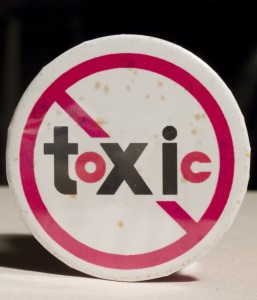 Seventeen years and counting – that's how long Downwinders at Risk has been fighting to get the EPA to modernize their rules for waste-burning cement plants. And we're not giving up.
Seventeen years and counting – that's how long Downwinders at Risk has been fighting to get the EPA to modernize their rules for waste-burning cement plants. And we're not giving up.
On Wednesday, a national coalition of environmental and community groups that included Downwinders at Risk asked a federal court to stay a decision by the U.S. Environmental Protection Agency to weaken and delay Clean Air Act protection against toxic pollution from cement plants.
By the agency’s own calculations, the delay will cause between 1,920 and 5,000 avoidable deaths and will allow cement plants to release an additional 32,000 pounds of mercury into the environment.
The complete list of groups seeking relief include Cape Fear River Watch, Citizens’ Environmental Coalition, Desert Citizens Against Pollution, Downwinders at Risk, Friends of Hudson, Huron Environmental Activist League, Montanans Against Toxic Burning, PenderWatch & Conservancy, and the Sierra Club, all of which have members who live and work in close proximity to cement plants and have suffered from cement plants’ excessive pollution for many years. Earthjustice filed the stay motion on their behalf in the U.S. Court of Appeals for the D.C. Circuit. A copy of the groups’ motion can be found here: Cement Motion to Stay Rule
Cement plants are among the nation’s worst polluters, emitting vast quantities of particulate matter, mercury, lead, and other hazardous air pollutants.
“As if gutting and delaying the rule were not bad enough, EPA has essentially created a compliance shield for the industry, making it impossible for citizens to hold facilities accountable for their toxic emissions. These changes in the cement rule are irresponsible and reckless,” said Jennifer Swearingen, of Montanans Against Toxic Burning.
“Los Angeles is ringed by cement plants, and three of them operate near my home in Rosamond,” said Jane Williams, of Sierra Club and Desert Citizens Against Pollution. “The pollution from these plants hurts the people in this community and robs us of the outdoor lifestyle we came here to enjoy. We can’t wait two more years to get relief from these plants’ pollution. I don’t want anyone in these communities to be among the people this pollution is going to sicken and kill.”
Our own Midlothian is the cement capital of the United States and so Downwinders at Risk' Director Jim Schermbeck had something to say about the move. “The EPA seems to have learned nothing from having cement plants exploited as inadequate hazardous waste incinerators. As cement plants are once again becoming the nation’s Dispos-All, and new wastes are generating new emissions, the Agency is weakening air pollution controls and making it easier for cement kilns to poison their neighbors. It was wrong to turn kiln into incinerators in the 1980s and it’s wrong to try and do so again in the 21st century – especially accompanied by a roll back in regulations."
In North Carolina groups are fighting a massive proposed cement plant. “A gigantic foreign cement company wants to build one of the world’s biggest plants here,” said Allie Sheffield, of PenderWatch and Conservancy, a group that works to protect the coastal ecosystem in Pender County, North Carolina. “If this plant is built, EPA’s new rule will let it emit twice as much lead, arsenic, and particulate matter into our air and waters. At this point, I have to ask – why do they call it the Environmental Protection Agency?”
William Freese, of Huron Environmental Activist League, lives near what the EPA’s Toxic Release Inventory lists as the dirtiest cement plant in North America for point source pollution. “This makes one wonder how the EPA, in violation of U.S. Court of Appeals’ order, can allow this company to do keep polluting for two more years. By the time they get around to finally doing what’s right, they won’t have any environment to protect,” Freese said.
“Federal law required EPA to put limits on this pollution more than a decade ago,” Earthjustice attorney James Pew said. “But under one administration after another, the agency has refused to put limits in place. Real people suffer as a result of EPA’s scofflaw behavior, and now they are going to court to say ‘enough is enough.’”
The 1990 amendments to the Clean Air Act required EPA to limit cement plant’s emissions of hazardous air pollutants such as mercury. In 2000, a federal court had to order EPA to set these standards after the agency refused to do so.
In 2010, in response to a lawsuit filed by Earthjustice on behalf of community groups living in the shadow of cement plants, EPA finally set the standards that the Clean Air Act had required it to set more than a decade before. These standards would have significantly reduced cement plants’ emissions of soot, mercury, lead, benzene and other toxic pollutants by September of this year.
Rather than acting to clean up their pollution, cement companies attacked EPA’s new rule in court and in Congress. The attacks failed. The court denied their request to vacate or delay the standards, and legislative efforts to do the same failed to gain support on the Hill.
In 2013, however, the EPA voluntarily gave the cement industry the very relief it had failed to get in court or in Congress. It delayed emission reductions that were already more than a decade overdue for another two years, until 2015. Additionally, EPA weakened particulate matter standards and eliminated requirements that would have required cement plants to monitor and report their emissions to the public.
Citizens are down but not out. And we will never rest until we see cement plants regulated the way they should be when they burn so many different types of waste. We can fight this fight because of your support over the years. Please help us keep fighting by putting a bill in the tip jar. We need your help to raise our 2013 budget to keep our staff in the field working for your lungs. Thanks.
“Human salvation lies in the hands of the creatively maladjusted.”
Want to Send Dallas City Hall a Message? Claudia Meyer For Dallas City Council
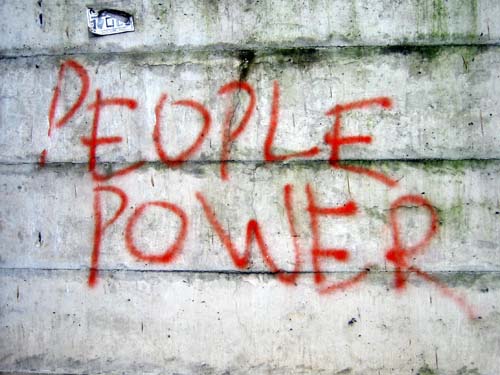 As hard as it is to believe, despite everything that's happened, Dallas could wind up with a more pro-drilling City Council in May than it has right now. Angela Hunt is term-limited. Scott Griggs is being paired with another incumbent, Della Jasso, and one of them won't be back. That's two out of the three major drilling opponents. Only Sandy Greyson is safe.
As hard as it is to believe, despite everything that's happened, Dallas could wind up with a more pro-drilling City Council in May than it has right now. Angela Hunt is term-limited. Scott Griggs is being paired with another incumbent, Della Jasso, and one of them won't be back. That's two out of the three major drilling opponents. Only Sandy Greyson is safe.
That's why it's important to look at the only Dallas City Council race that pits a grassroots environmental leader of the drilling fight against an over-the-top supporter of more drilling – Claudia Meyer vs. Vonciel Hill in District 3, a new district that includes much of Griggs' Oak Cliff and Southwest Dallas turf along with precincts from Hill's old District 5.
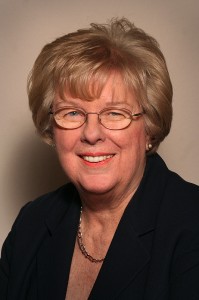 You know Claudia, even if you haven't met her personally – because she's one of you. She's a 20-year Dallas resident, who along with her husband Ed, was there at the very beginning of the Dallas fight four years ago. Like so many others, curiosity about a proposed well near her neighborhood initialed research and activism that continues today. She attended every single Dallas Gas Drilling Task Force Meeting. She's a co-founder of Dallas Residents at Risk. And if that's isn't enough bone fides for you, she's also an original Downwinder, a veteran of the TXI hazardous waste fight of the 1990's.
You know Claudia, even if you haven't met her personally – because she's one of you. She's a 20-year Dallas resident, who along with her husband Ed, was there at the very beginning of the Dallas fight four years ago. Like so many others, curiosity about a proposed well near her neighborhood initialed research and activism that continues today. She attended every single Dallas Gas Drilling Task Force Meeting. She's a co-founder of Dallas Residents at Risk. And if that's isn't enough bone fides for you, she's also an original Downwinder, a veteran of the TXI hazardous waste fight of the 1990's.
Vonciel Hill is a two-term incumbent who enthusiastically supports gas drilling and has shown a propensity for cronyism in office.
Most recently, you might remember her from her February 27th rant comparing City Manager Mary Suhm to Christ for having to suffer through Angela Hunt's cross-examination of Suhm about the circumstances of the secret agreement between Suhm and Trinity East over their pursuit of gas drilling permits in Dallas. The Dallas Observer's Jim Schutze wrote a column about it the next day headlined: "Vonciel Hill: City Council Member, Prophet, Theologian and Sell-Out:"
Yesterday in a Dallas City Council debate over gas drilling on city parkland, Hill compared council member Angela Hunt to Haman, the killer of Jews and symbol of all evil in the Book of Esther.
Not done yet. Next, Hill compared Dallas City Manager Mary Suhm to Jesus Christ. She predicted that Suhm would one day rise from the dead and enjoy her own personal version of Easter.
Council member Hunt had questioned City Manager Suhm sharply over a deception Suhm pulled on the council in 2008, promising to fight against gas drilling on parkland, then secretly signing a deal with a gas company saying she would win them permission to drill on parkland, then taking a $19 million check from them, on behalf of the city, in return for the deal that she hid for years from the council and from the public until Hunt and council member Scott Griggs got onto it recently.
"Recall in the story of Esther how Haman built the gallows for Mordecai, but it was Haman who hanged on the gallows. Those who affix the gallows for you may themselves hang on those gallows.
"And then reach forward from the Hebrew scriptures to the New Testament scriptures, where those who said of Jesus Christ on Good Friday, 'Well, he's done, he's dead, we've got him now,' wait three days, because Easter will come and there will be the resurrection. And those who pierced him on Good Friday are no longer known, and their names are not around, but two thousand and some years later, the name of the Christ is still ringing forth.
"Miss Suhm, this is a Good Friday moment, but I guarantee you from the faith well into which I reach, your Easter is coming, and you will sail forth."
One last thing about this. Since Hill is the one who chose to put the gas drilling debate on these terms, I think it's fair for me to turn it around and ask her a question on the same terms. And this is not a joke.
If Jesus Christ had signed a secret covenant with the Romans agreeing to look the other way while they screwed over the Jews, would we remember his name today? Really? Or wouldn't he have been just one more forgotten cheap politician who took on all sorts of cheap gaudy religious airs in order to pump up his profile? Like you, Ms. Hill. Exactly like you.
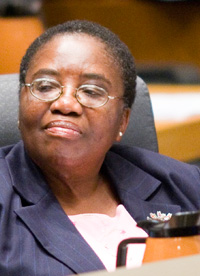 So many people were disgusted by her performance that day that Claudia was overwhelmed by requests to run against Hill. At the last minute, Claudia said yes.
So many people were disgusted by her performance that day that Claudia was overwhelmed by requests to run against Hill. At the last minute, Claudia said yes.
This race is now the necessary next step in the Dallas Drilling Fight. The stakes are very high. If Claudia runs and doesn't win, it not only sets the cause back, but residents could very well have a Dallas city council that will be more pro-drilling than now.
Claudia starts out in a familiar place: underfunded and overworked. That's why she's asking for your help. She's requesting that you please go to her website contribution page right now and send her some needed cash. She needs to raise $9,000 by the end of the first week in April to be able to run the campaign she needs to run to win. Do this today if you want to send City Hall a message that you will continue to fight its drilling plans.
Claudia also needs volunteers to help block walk and make telephone calls, and deliver yard signs. She needs the same army that shows up at City Hall to show up in District 3 to carry the day. Send an e-mail to elect.claudiameyer@gmail.com and let them know you want to volunteer for the campaign. Do it today please.
Remember how you're always saying you'd really like to work for a candidate you believe in? Remember saying how you wish you could send those so-and-so's down at City Hall a real sign of how you feel? The time is now. The opportunity is an e-mail away. In these campaigns, every day is like a week. Don't waste any time. Don't put it off. Or come May, you may find yourself with a City Council that wants to Drill, Baby Drill.

